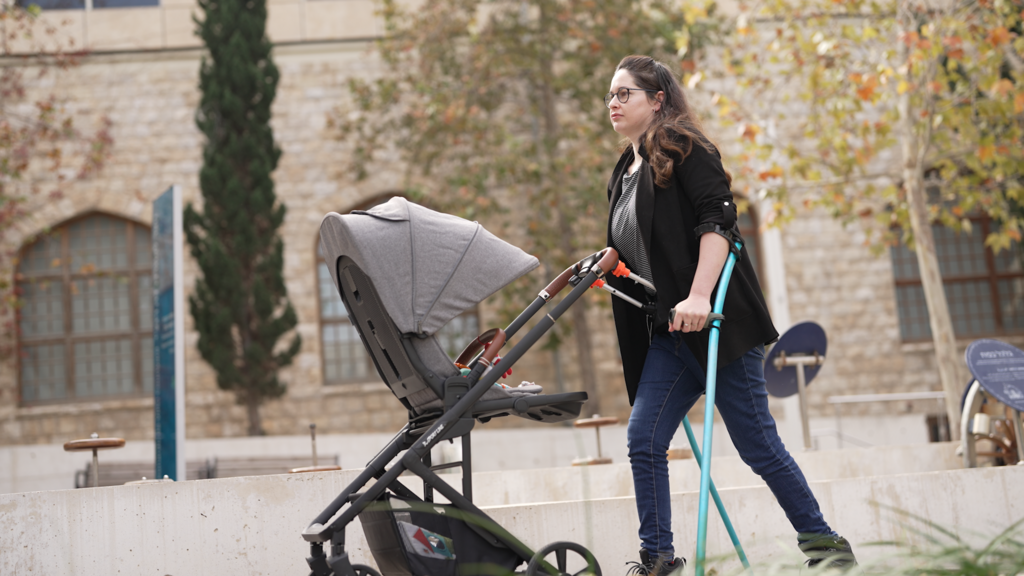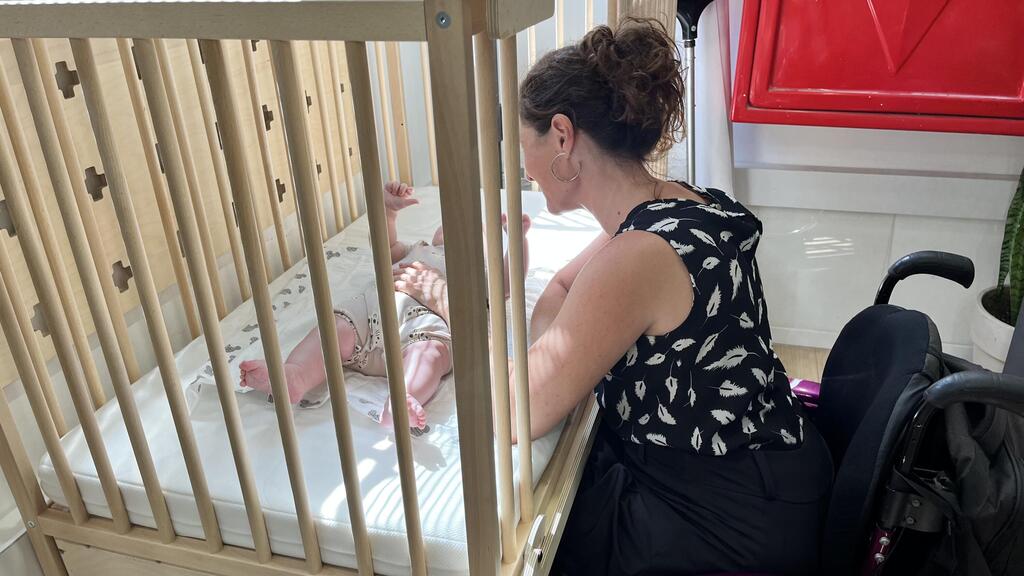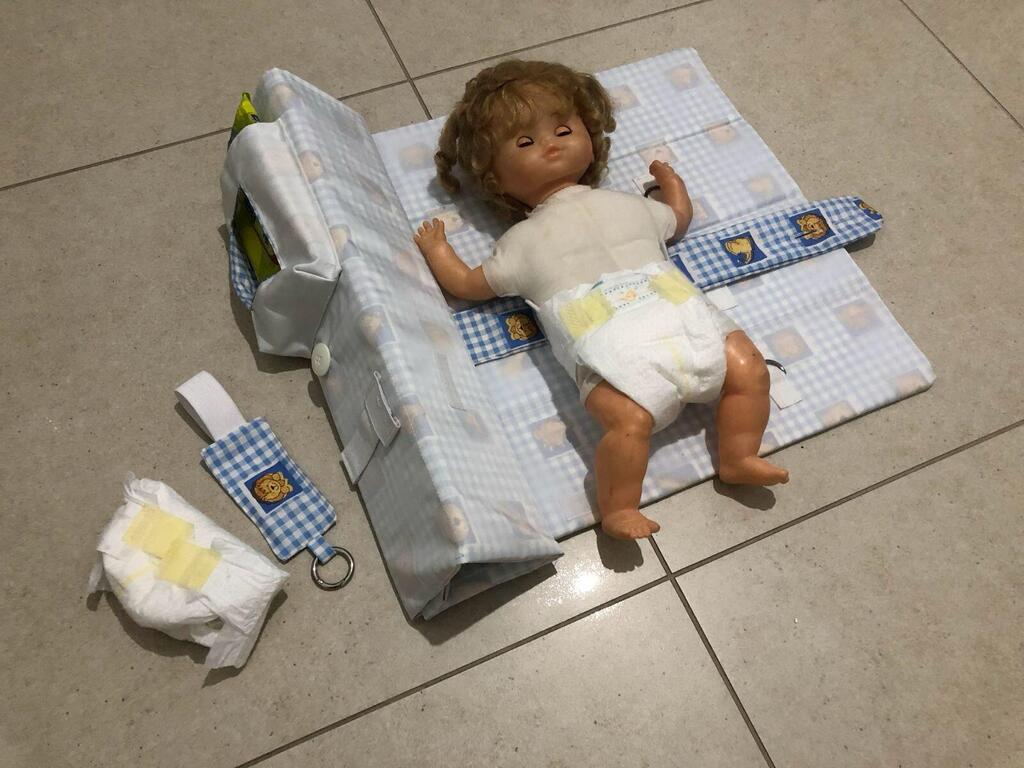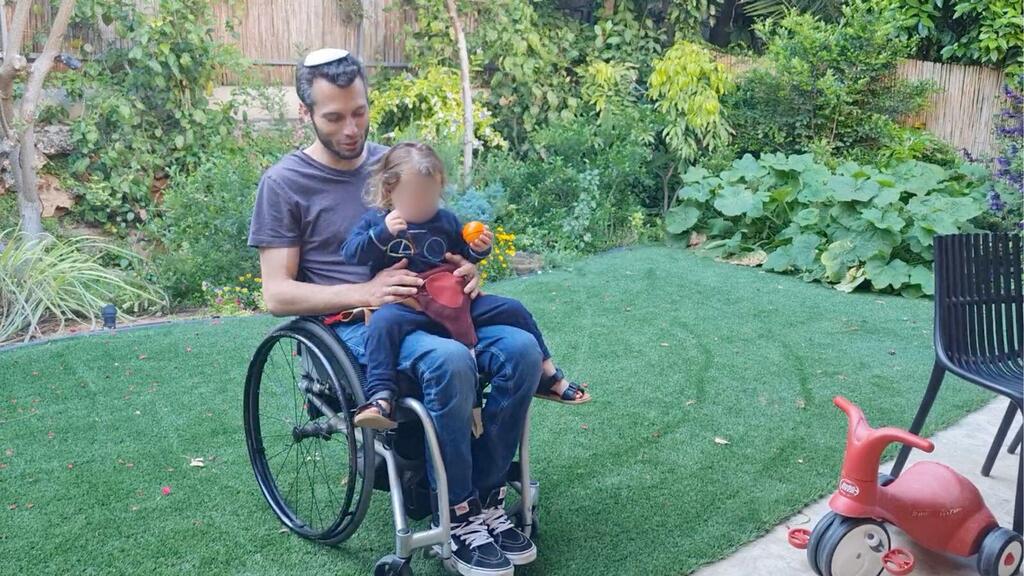Getting your Trinity Audio player ready...
The ongoing war in Gaza has left hundreds of young Israelis with new disabilities, many of them at an age when they are starting a family or raising young children. For them, and for thousands of other Israelis with disabilities, the question "How can I take care of my children?" becomes a complex daily challenge.
The answer to this challenge is provided by TOM - Tikkun Olam Makers, an Israeli-American initiative that has become a global movement operating in 35 countries, that develops innovative, accessible and affordable solutions for the needs of people with disabilities.
Erel Halevi, a 33-year-old former Paralympic swimmer, is a living example of the ability of technology to change lives. A year and a half ago, when her eldest son Ron was born, she encountered a challenge that seemed insurmountable at the time.
"I've been walking with crutches since I was 11 and when Ron was born I realized that I had no way of handling the stroller," she says. "I wanted to go on walks like every mother, but how is that possible when you need both hands for the crutches?"
The solution came in the form of a unique harness developed for her at TOM. "We worked together on the development," says Erel. "The harness connects to the waist and allows me to push the stroller with my body’s movements, while my hands are free for the crutches. It simply changed my life.”
"For almost 16 years I represented Israel in competitions, including three Paralympic games," she adds, "Today I want to help others find the solutions that will allow them to live a full life despite, and with, their disabilities."
"Every person should dream, and every person should believe that this dream is able to be realized", said Dana Yichye Shwachman, the head designer of TOM. "When it comes to being a parent, it's not just a dream - it's a basic right."
Dana speaks from personal experience. She grew up in the 1980s with a wheelchair-bound father, at a time when the word "accessibility" was almost foreign in Israel. "I personally experienced the meaning of inaccessibility," she shares, "the frustration when my father could not take care of me himself."
What is the answer that the project gives to parents with disabilities?
Dana: "We develop solutions that allow them complete independence in caring for their children. For example, we took an IKEA crib and added a sliding opening mechanism with automatic locking, which allows a parent in a wheelchair to access the baby easily and safely."
'Solutions that cost 80% less'
The project, founded in 2014 by the Israeli-American entrepreneur Gidi Grinstein, who currently serves as the president of the project, is based on two central principles: open-source, and user participation in the development process.
"I don't think that those who use our products are people who have difficulty raising children," emphasizes Dana. "It is more likely that they simply do not have an environment that is adapted to their abilities. That is why our solutions are available to everyone - there is no intellectual property, everything belongs to the global community, and anyone can download the designs and manufacture the products themselves."
And what about the prices?
"We work with the Frugal Innovation approach, and use simple tools and available materials. The result is solutions that cost 80% to 99% less than market prices."
"I don't think that those who use our products are people who have difficulty raising children," emphasizes Dana. "It is more likely that they simply do not have an environment that is adapted to their abilities. That is why our solutions are available to everyone - there is no intellectual property, everything belongs to the global community, and anyone can download the designs and manufacture the products themselves."
As part of the project's expansion of activities, Grinstein notes that TOM developed a unique university program. "We operate in 57 leading universities in the world, training students to lead maker activities for the development and manufacturing of solutions on campus. This is an excellent way to reach young talent and harness them to our goal."
Students from Shenkar College and the Holon Institute of Technology HIT have already developed solutions that have gained international recognition. Among other things, they developed a unique safety belt that allows a parent in a wheelchair to sit a child on their lap safely - a solution that won the "Community Award" in the 2023 TOM Global Innovation Challenge.
A look to the future
As a result of the ongoing war, the necessity of the project is re-validated. According to Grinstein, since October 7, 2023, communities of engineers and designers have been recruited to respond to the wounded soldiers of the IDF, in cooperation with the Rehabilitation Division and the Ministry of Defense, as well as hospitals and rehabilitation centers in Israel.
The recognition of this activity was manifested in winning the prestigious Zero Project Award for 2025, which will be awarded this March in Vienna together with 77 other organizations from 45 countries. "This is a great opportunity to present Israeli activities to the world," Grinstein emphasizes.
Get the Ynetnews app on your smartphone: Google Play: https://bit.ly/4eJ37pE | Apple App Store: https://bit.ly/3ZL7iNv
With over 2,200 active volunteers, of which 750 are in Israel, the project continues to grow. "We already have about a thousand solutions in development," concludes Dana, "from solutions for everyday needs such as eating and drinking - to sports and music.
"All solutions are available for free download on the website, and there is also the option of seeking help from the project's volunteer community, which also appears on the website. It is not only about Technology - it's about the basic right of every person to live independently and with dignity."





